Bag of Marbles serves as a first-rate example of making difficult history relatable to the younger generation by engagingly telling a real-life story from a child’s point of view. Director Christian Duguay, who has had a successful touch with the period family films Jappeloup (2013) and Belle & Sebastian: The Adventure Continues (2014), takes on France under the Nazi occupation through the eyes of a 10-year-old Jewish boy.
JoJo Joffo (Dorian Le Clech) is 12 in August 1944 when he returns to Paris and starts ruminating back to May 1942. His frequent voice-overs capture the adventurous Huckleberry Finn tone of Joseph Joffo’s 1973 first-person autobiographical novel, which has been translated into 18 languages and adapted into a 2012 graphic novel (both available in English).
Though the boy blocks the “Jewish Business” sign on his father’s barber shop when SS officers come around, JoJo otherwise finds his school teacher’s pronouncements on Hitler’s technological superiority to be unimportant, until his father, Roman (Patrick Bruel), brings home the required yellow stars for the whole family, which his musician mother Anna (Elsa Zylberstein) must sew them on. His classmates are shocked, and they suddenly see them differently: “I never knew you were Jewish.” “It makes you a Yid.” “You have a Jewboy schnoz.” “The Occupation is Jews’ fault!”
Unlike Jacques Doillon’s 1975 adaptation (not released in the U.S in theaters or DVD), this film version of JoJo fits the author’s description of his youthful self as blonde and blue-eyed and his 12-year-old brother Maurice (Batyste Fleurial Palmieri) with light brown hair. They do not look like the Nazis’ anti-Semitic propaganda posters. (Their constant roughhousing and teasing wonderfully establishes their close fraternal bond; the two young actors really do carry the film.)
Their father realizes their appearances may help protect them (fair looks saved many other Jewish children) when he sends them off together, separate from their parents and two older brothers, to reach contacts in Vichy France. But he forcefully has to insist they repeat a life-saving lie: “I’m not Jewish.” (There’s no explanation for younger American audiences of Occupied vs. France’s Free Zone or that the roundups in the north are being conducted by French gendarmes, though they can figure out the context that heading south on the map somehow seems safer for the time being.)
Through a combination of “passing” as Catholic, luck, and quick-thinking street smarts, JoJo and Maurice stick together. They ride crowded trains, dodge German soldiers and dogs, walk long rural paths, and have to take a big chance to occasionally trust an adult, including a priest on a train, a hustler on a bike who guides them across the border, and farmers. Amazingly, they meet up with their family in Menton on the Riviera. In the only place in France occupied by the Italian army, they enjoy months in a respite of an amusing roundelay of moneymaking shenanigans. (Left out here are the risks their parents and older brothers actually faced before setting up a new barber shop.)
Then in 1943, the downfall of Mussolini removes the Italians and brings in the Germans. The parents again send the brothers away, this time the younger ones go to “New Harvest,” what the locals call a “collaborators’ camp,” a government fascist training facility for minors. In the dorm they meet a stateless boy originally from Algeria, and they conveniently adopt his untraceable background for their own. They need that cover story when they are captured at Nazi headquarters on a routine supply run to Nice. Even with illness, they manage to find help to outwit the Gestapo. Their sharpened suspicions and hard-won experience kick in when they again have to flee the tightening pressure.
They emerge in another small town, full of collaborators and a militia, led by the family JoJo works for that brutally hunts down Resistance members. But JoJo helps the Resistance, since he hopes to impress the pretty daughter of the household. When news of the liberation of Paris comes in August 1944, he witnesses how people in a flash cruelly turn on these collaborators. He ends up surprising everyone when he returns an unwitting favor; he has learned important lessons about the kindness of strangers.
Almost forgotten during his travails is his now childish-seeming fondness for marbles, when his best friend traded a bag for his yellow Jewish star. The tragically mixed fate of the rest of their family is quickly communicated in a closing scroll, alongside black-and-white footage of the elderly JoJo and Maurice, still close for all their lives. (The briefly seen violence is less gritty than Martin Koolhoven’s young adult tale of Nazi-occupied Holland, Winter in Wartime, from 2011.)
Bag of Marbles is a lovely, clever boys’ war story that movingly imparts history about the Holocaust and family, with Jews front and center as masters of their destiny.

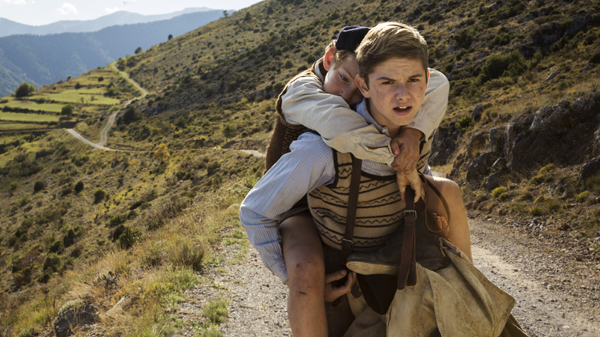
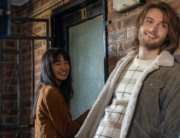
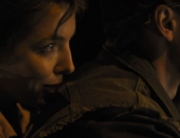
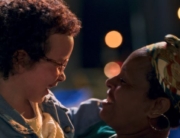
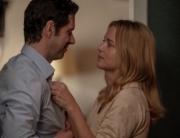
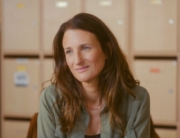
Leave A Comment